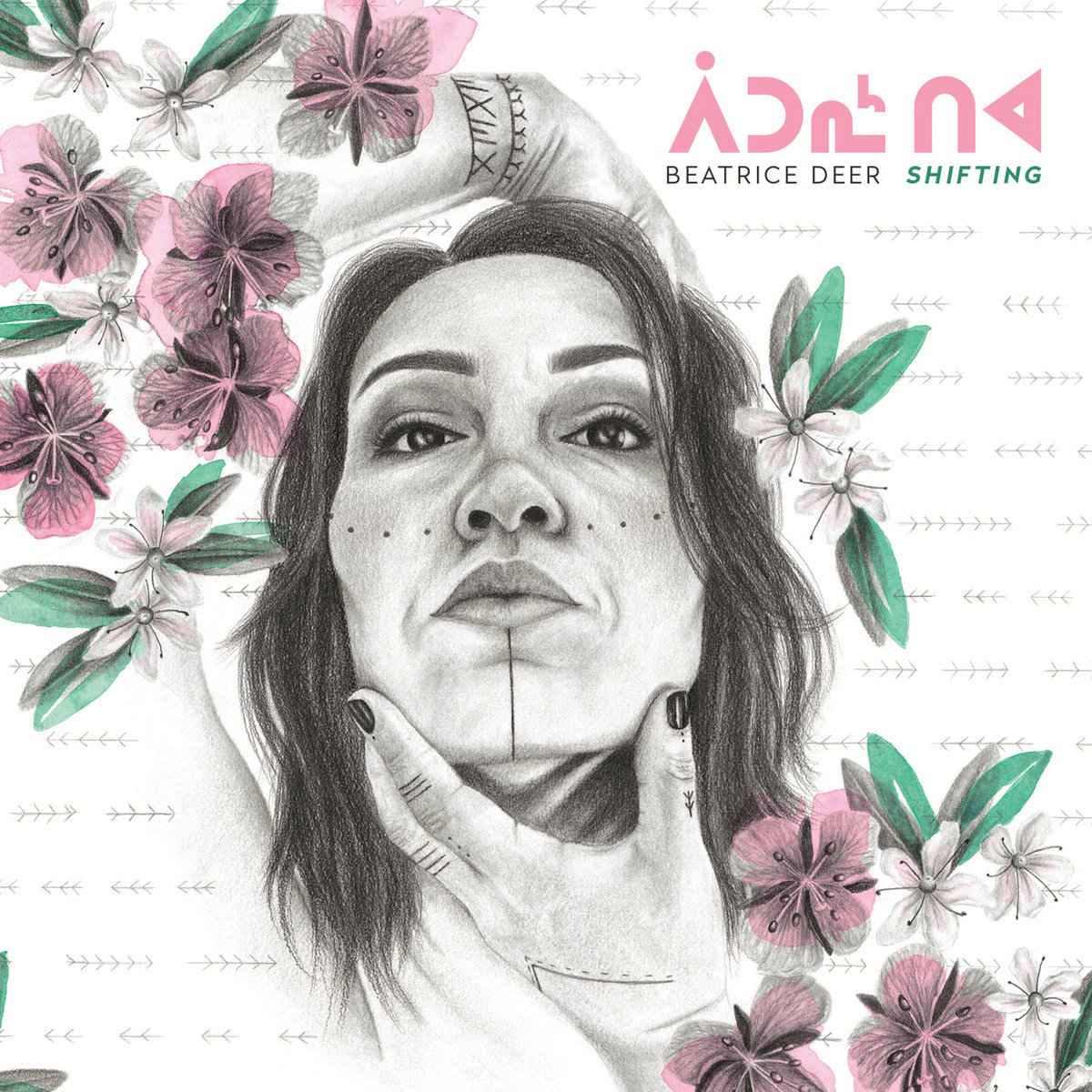Beatrice Deer
SHIFTING
SELF-RELEASED
8/10
You can distinctly hear the influence of dreamy ’90s alt-rock on Québec-based singer/songwriter Beatrice Deer—her last album, 2018’s My All to You, had a distinct Cranberries flavor, for example. As a child, though, her earliest musical input came just as much from the small Inuit community that made up her village of Quaqtaq. “My parents are the main Christmas band,” she explained in a 2020 episode of the Basic Folk Podcast. “The whole community meets at the local school gymnasium to celebrate Christmas…square dancing for hours and hours and hours.” She pays tribute to that on the last track of her new album, SHIFTING, which features her mother Eva Deer on the accordion, filtered as if playing from another time and place.
Popular narratives about First Nations peoples are full of clichés about suffering, and that’s certainly part of Beatrice Deer’s story—she speaks openly about surviving abuse, grief, addiction, and mental illness. But what she’s also discussed in interviews about SHIFTING, and what comes through as the overriding tone of the album, is the richness of her culture and the joy and healing she’s achieved through transmitting it. Deer sings in Inuktitut as well as French and English, and she performs traditional Inuit throat singing over contemporary instrumentals in a style she calls “Inuindie.” The rolling post-punk beats flush with harps and horns will be familiar to fans of indie icons like The National or Arcade Fire at their most hopeful. The throat singing, which lends a breathy, percussive grit to the buzzy dance punk jam “THE STORM,” will be a revelation to most outside the far north.
As a cultural demonstration, it’s awe-inspiring (see “AANNGIQ,” from a traditional Inuit lyric), to say nothing of the personal expression. Deer generously provides song translations on her Bandcamp, but you can hear the feeling of triumph in any language. At the end of a brilliant, distorted guitar solo on “SUNAUVVA,” a laugh bubbles up in the studio that could fill a high school gymnasium. Deer sings about transcendence on songs like “FREE” and “HISTORY.” In moments like this, she achieves it.







